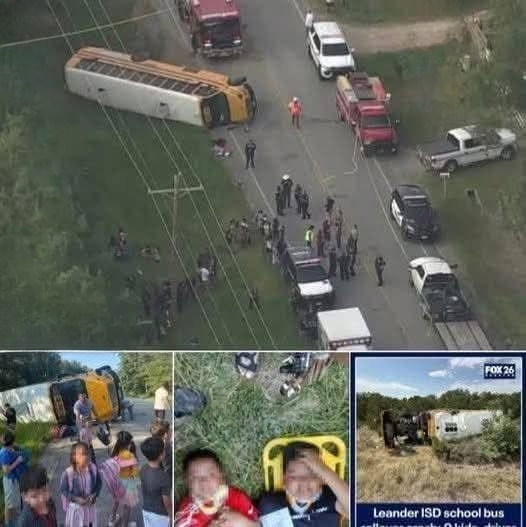A Nation Shattered
Eight years ago, Tanzania endured one of its most harrowing modern tragedies—a day that tore families apart, emptied classrooms, and left the entire nation in mourning. On May 6, 2017, a school bus carrying students from Lucky Vincent Primary School in Arusha lost control on a slippery mountain road in Karatu district. The accident claimed the lives of 32 children, two teachers, and the driver. Even today, in 2025, the pain remains fresh.
A Morning of Hope
The day had begun like any other, filled with pride and anticipation. The children were on their way to take a mock national exam, something they had been preparing for months. Teachers encouraged them to do their best, and parents sent them off with hugs and smiles, never imagining it would be the last time they would see their children alive.
The road to Karatu was notoriously treacherous, winding through hills often slick with rain. Witnesses later described the bus struggling around a sharp bend before skidding off the wet pavement. It plunged into a ravine, rolling multiple times before coming to rest in a crumpled heap of metal. When rescuers arrived, they were met with a silence that spoke of the unimaginable.
A Country in Mourning
News of the crash spread like wildfire across Tanzania. Radio and television stations interrupted programming; newspapers printed black-bordered headlines. The entire nation mourned. President John Magufuli declared a national day of grief, while citizens across the country held vigils and prayer gatherings for the victims.
In Arusha, desperate parents crowded hospitals and morgues, clinging to hope. One mother recognized her daughter only by a handmade bracelet. One father fainted upon seeing his son’s backpack among the wreckage. The grief was incomprehensible, raw, and unrelenting.
A Glimmer of Light
Amid the devastation, a small miracle emerged. Three students—Wilson, Sadia, and Doreen—were found alive, severely injured but breathing. Airlifted to the hospital, they later received advanced treatment in the United States. Their survival became a beacon of hope, resilience, and the enduring human spirit.
A Call for Change
The tragedy sparked national conversations about road safety and accountability. The government promised reforms: stricter driver licensing, enhanced training for school transport operators, and improvements to rural roads long neglected. For a while, public awareness surged, and change seemed possible.
Yet as years passed, momentum slowed. Some reforms were enacted; others faded into bureaucracy. Still, the Karatu tragedy remained a permanent reference point. Every time another accident occurred, the country remembered those 32 children. Their story became part of Tanzania’s collective memory.
Honoring Their Memory
Today, near the crash site, flowers and school uniforms appear each May. Families travel from across the country to reflect quietly. Teachers and students from Lucky Vincent Primary School read the names aloud, one by one. Each name carries a story—a child who loved football, drew animals, or dreamed of becoming a doctor, pilot, or teacher.
The survivors, now teenagers, carry a complex legacy. They have grown strong, yet the weight of being “the ones who lived” never leaves. Sadia said in an interview, “I still see their faces sometimes. I think we survived for a reason—to keep their memory alive.”
Safety and Education
The school itself has changed. Drivers now undergo monthly evaluations, seat belts are mandatory, and every trip is preceded by thorough inspections. A scholarship fund in the victims’ names helps students from low-income families continue their education, honoring the dreams of the children who perished.
Parents of the victims remain united by grief and purpose. They have formed support groups, lobbied for safer roads, and met with lawmakers to push for change. Mourning has become action—a movement to prevent others from experiencing the same pain.
The Enduring Grief
Even eight years later, the ache persists. Empty chairs at home, untouched notebooks, and the echoes of laughter remain reminders of a day that changed everything. Tanzania continues to wrestle with hard questions: How can we keep children safe on roads built without care? How do we ensure accountability? And how do we heal?
Healing, it seems, takes many forms. Planting a tree at the memorial, volunteering for road safety programs, or visiting the crash site to leave flowers and prayers—each act a personal tribute. For the survivors, healing is about honoring the lives that ended so theirs could continue.
Lessons Learned
The Karatu tragedy showed that grief and resilience can coexist. Life can be undone in moments, yet people can come together in extraordinary ways. Subsequent challenges—pandemics, economic struggles, political shifts—have not erased the memory of May 6, 2017. It remains a national wound, reminding the country that progress and safety require vigilance and compassion.
A Lasting Tribute
At the memorial, a simple plaque reads: “They went to learn and became our teachers.” And it is true—the lives of those children, though tragically brief, reshaped Tanzania’s understanding of safety, responsibility, and love.
Eight years later, flowers are replaced year after year by hands unwilling to forget. Tears have slowed, but the memory endures—a generation gone too soon, leaving behind a promise: Tanzania will honor their story, always.
The children of Karatu were more than victims—they were the heartbeat of a nation that, even in mourning, found the courage to hope again.
